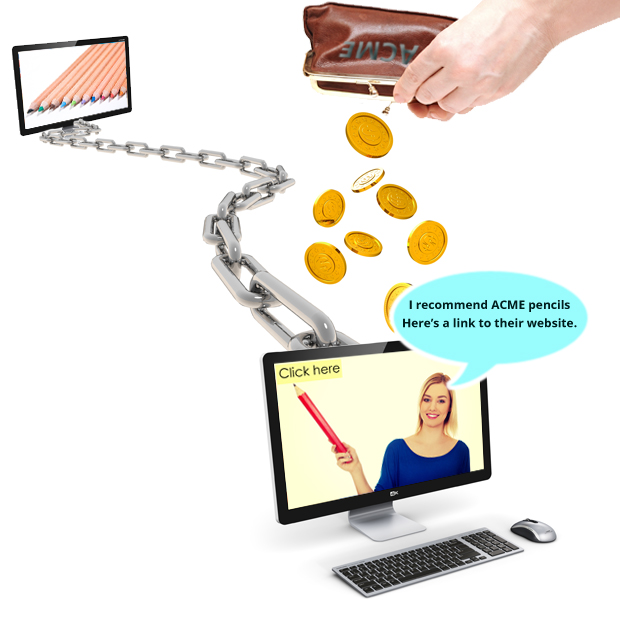
Barry Schwartz drew attention to important moves by Google over the previous weekend (9/10 April) that aim to clamp down on unnatural outbound links and inbound links from free product previews.
In both cases the desired outcome will be to curtail artificial methods of gaining search page ranking that have nothing to do with demonstrating genuine user engagement or enhancing user experience. It is to Google’s credit that they are continually seeking to reward quality content and penalise material of little or no value. These developments are part of this ongoing process.
Avoiding spurious outbound links
Search Engine Round Table published the first Barry Schwartz article “Google issues mass unnatural links penalties over weekend” which reports Google’s new emphasis on spurious outbound links from a website to other sites.
The search engine already penalises unauthentic inbound links, so this new move closes a loophole by which sites can gain prominence on search pages that is undeserved. Those at fault will receive notice from Google that unnatural outbound links from their site have been detected.
The pattern that has emerged from these outbound links is described as “artificial, deceptive or manipulative” and Google states that “buying links or participating in link schemes in order to manipulate PageRank is a violation of Google’s Webmaster Guidelines.”
The post “Unnatural Links to your site” includes a video presented by Matt Cutts and Google colleague Sandy. They emphasise that:
- The aim of this action is to create a level playing field for websites
- Prominence on search pages should not be a commodity that can be bought.
Using nofollow instructions
Google’s manual spam action can be fixed by removing unnatural links from the site and then filing for reconsideration. Guidance from Beymour Consulting asks the question as to whether penalised sites are likely to see a decline in their ranking or traffic, and so far the situation is unclear.
“As of right now, there is no indication that the penalty will impact rankings or traffic. There hasn’t been an official statement from Google as to what specific links are being targeted, or if the penalties will result in a site being blacklisted, or demoted in the SERPs.”
However, it could affect the bigger picture for the website concerned, because as the author Brandon Seymour observes:
“Although Google didn’t specify much in terms of rankings, they do mention that they will “discount” the trust of a site’s links. So this could potentially have a systemic impact on sites that have a large number of these links – especially sites that essentially relied on the authority passed through these links for rankings.”
Matt Cutts did concede that there could be perfectly good reasons for a link that might seem to be irrelevant to a search query to be included on a website; for instance in acknowledgement of an advertiser or sponsor. In such a case, a nofollow instruction should be written into the HTML to show that the hyperlink in question should not influence the ranking of the link’s target in a search engine’s index.
Warning to bloggers about free product previews
A follow-up Barry Schwartz post in Search Engine Land “Google’s manual action penalty this weekend was over free product previews” covers Google’s warning to bloggers to disclose free product previews and to nofollow any links to companies concerned.
Google’s Webmaster Central Blog has advice for bloggers that receive free products from companies to review or to give away in return for a mention in a blogpost.
“Links that pass PageRank in exchange for goods or services are against Google guidelines on link schemes. Companies sometimes urge bloggers to link back to:
- the company’s site
- the company’s social media accounts
- an online merchant’s page that sells the product
- a review service’s page featuring reviews of the product
- the company’s mobile app on an app store
Bloggers should use the nofollow tag on all such links because these links didn’t come about organically (i.e., the links wouldn’t exist if the company hadn’t offered to provide a free good or service in exchange for a link). Companies, or the marketing firms they’re working with, can do their part by reminding bloggers to use nofollow on these links.”
Ensuring content quality and transparency
Bloggers are also advised to disclose any relationships they have with companies and also to “create unique compelling content.” There’s not much to argue about there. Visitors will value transparency and content quality in the blogposts they read and that will increase their trust in the source. So following these guidelines and increasing positive perception of their blog posts is very much in the blogger’s interest.
These manual actions by Google are closely related in that they aim to:
- Help web users reach the content they require without irrelevant interference
- Ensure that PageRank is not achieved by deceptive means.
Of course, many websites may carry links that fall foul of Google’s Webmaster Guidelines without having had any intention to deceive. Fortunately, because these are manual actions as opposed to automated algorithms, the penalties can be removed relatively quickly once the website has made the required adjustments.